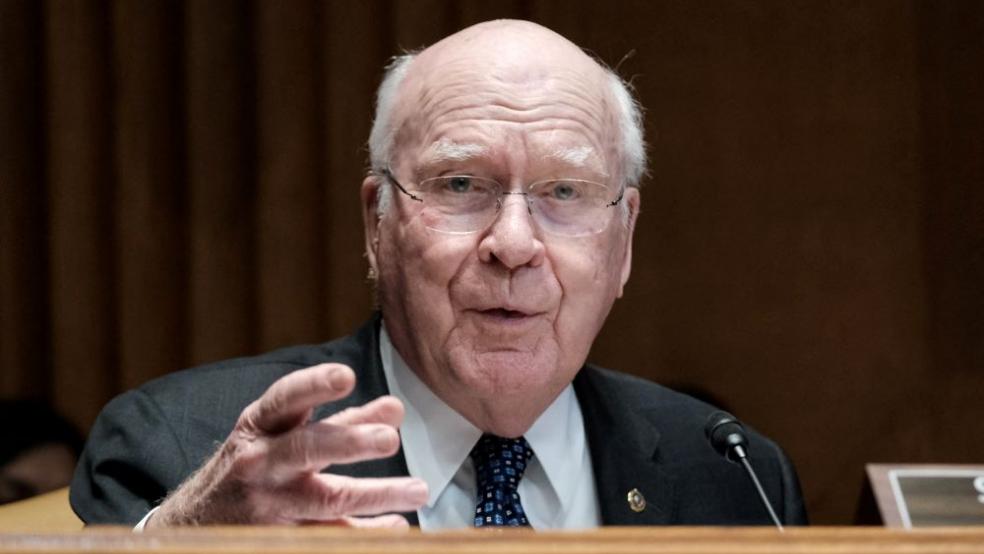The House passed a pair of big bills Thursday, but bipartisan talks on funding the government through the rest of fiscal year 2023 remain at an impasse, with Democrats and Republicans billions apart on proposed domestic spending. As lawmakers scramble to try to break the gridlock ahead of a December 16 deadline, when current funding will expire, Democrats are preparing to release their own spending package for 2023 on Monday in a bid to turn up the pressure on the GOP.
“Today, we are careening toward another unnecessary, manufactured crisis with current government funding set to expire in eight days,” Senate Appropriations Committee Chairman Patrick Leahy (D-VT) warned.
A brief overview of what got done Thursday and what’s still ahead:
A landmark marriage rights law: House lawmakers approved the Respect for Marriage Act, which protects same-sex and interracial marriages. All 219 Democrats were joined by 39 Republicans in supporting the landmark legislation, which now heads to President Joe Biden’s desk.
A record sum for defense: In a broadly bipartisan 350-80 vote, the House also cleared the $858 billion National Defense Authorization Act for fiscal year 2023, including a provision rescinding the Pentagon’s Covid vaccine mandate for active duty servicemembers. The massive defense policy bill now goes to the Senate, and while the White House and Pentagon have publicly opposed ending the vaccine mandate — and some military officers are privately fuming about it — there are some indications that Biden will sign it once it reaches his desk.
Democrats prepare a government funding plan: Democrats are pressing for an increase in non-defense spending in line with the big bump being provided for the military and national security. Republicans have opposed such an increase, citing the money Democrats have provided for domestic priorities through partisan reconciliation bills. Democrats counter that those bills were passed to address the pandemic and other needs, not basic annual funding for federal programs.
“Democrats agree with our Republican colleagues that inflation threatens our national security,” Leahy said Thursday. “However, non-defense programs face an equal threat and demand an equal response, and Republican inaction threatens bipartisan priorities and programs. Without an omnibus, the bipartisan CHIPS law, which will help our country compete with China, will languish. Our promise to our veterans will be broken as the bipartisan PACT Act would go underfunded and VA medical care would fall at least $7.5 billion short.”
The two sides are about $25 billion apart on non-defense funding — a small sum relative to what could be a $1.7 trillion discretionary budget. But they’ve made precious little progress in recent days.
As talks have floundered, Democrats led by Leahy and Rep. Rosa DeLauro (D-CT), chair of the House Appropriations Committee, have been drafting their own omnibus spending package to cover the full fiscal year 2023. It will provide the full $858 billion for defense called for by the NDAA. Leahy called it “fair and bipartisan,” adding that Democrats have eliminated poison pills that Republicans have found objectionable. “We firmly believe that this bill can and should earn the votes of at least 10 Republican senators,” he said.
That seems unlikely. “Our Commander-in-Chief and his party have spent huge sums on domestic priorities outside the normal appropriations process without a penny for the Defense Department,” Senate Minority Leader Mitch McConnell (R-KY) said after Leahy’s remarks. “Obviously, we won’t allow them to now hijack the government funding process, too, and take our troops hostage for even more liberal spending.”
Once Republicans reject Democrats’ proposal, Leahy said his party would then turn to a full-year continuing resolution funding the government at last year’s levels “with no adjustments for inflation and the real life consequences that entails” — an outcome that Pentagon leaders and lawmakers alike have warned would represent a blow to military readiness and aid to Ukraine.
The bottom line: Congress has until December 16 — next Friday — to pass a full-year spending plan or a stopgap extension of federal funding. Neither side wants a government shutdown. “Congress should have the ingredients for an easy year-end legislative deal,” The Washington Post’s Tony Romm reports. “But in a Capitol where nothing has been simple recently — and partisan tensions still run high — there’s a growing fear that even the politically achievable is going to be anything but.”
A short-term funding patch has long appeared to be necessary, but even that may be the subject of dispute, given that Democrats aren’t likely to go along with an extension into next year, when Republicans will control the House. Next week will be critical.





